We want to help enable all our tamariki to be creators with technology not just consumers of it
"The technology-related talent of the future will not miraculously materialise, it must be cultivated," according to Gartner.
“Education leaders and students need to see how knowledge will be used in the working world, to guide them to better outcomes. One way to achieve that is via public-private partnerships — private companies sponsoring community college training programmes,” write Gartner analysts analysts Mark Raskino, Patrick Meehan and Mary Mesaglio.
Thus, one of their CIO resolutions for the year ahead was for business technology leaders to, “build a partnership with a local community college, or a secondary or middle school”.
It is all part of the CIO’s “personal development”, they point out.
Some of the activities CIOs can take are to visit local schools to engage on work-study or innovation challenges, or to propose an after-school technology club to encourage discussions on technologies and trends.
The CIO can support the club by providing materials or the venue, and time from their team, they state.
This focus on the community is familiar territory for a number of New Zealand ICT leaders.
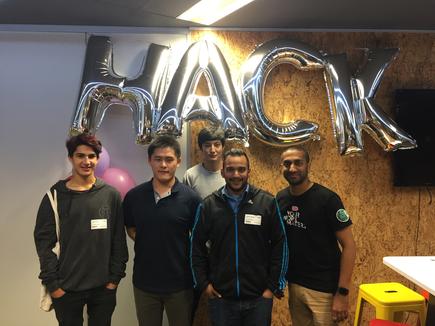
Enable our tamariki to be creators with technology
Vivian Chandra is an advisor for OMGTech!, but also its CTO.
OMGTech is a not for profit organisation, which develops and delivers workshops for teachers and students on digital technologies.
“OMGTech! wants to help enable all our tamariki to be creators with technology not just consumers of it,” says Chandra.
“Understanding how it all works will be a fundamental requirement to participation in society in the future.
“It's important to become a digital citizen, not just from a job creation point of view, but from a societal one. Our kids will be using technology to shape their world in the future.
“But access to digital technologies can be expensive and out of reach for many. So being able to bring our workshops directly into schools allows us build long-term partnerships and reach a much larger group of kids,” says Chandra.
OMGTech! partners with major technology companies, such as Spark and Microsoft, to tap into their existing volunteer programmes.

Through this, we have been able to deliver programmes directly into schools, she says. “This allows all the children to spend time with, and hear stories from, people who are working in the technology sector.”
She quotes Vaughan Rowsell, the founder of OMGTech, Vend, and vice chair of the New Zealand High Tech Trust, who said: “It is important that we ensure every Kiwi kid has access to future technologies. We need to ensure that we are focusing on getting digital education into our underserved communities.”
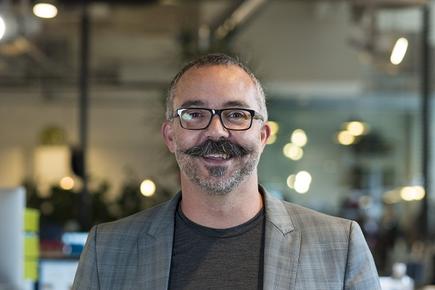
“The technology sector is our third largest export sector and the creative technology sector is growing fast as well, with the film, music and game design industries all flourishing,” says Rowsell.
“These industries are creating the jobs of the future. They have a strong role to play in helping to upskill the next generation and this programme allows them to work directly with schools to inspire the next generation.”
Face to face with digital inequality
Neil Gong is group IT manager at Airedale Property Trust, which is part of the Methodist Mission Northern.
The trust provides property development, project management and property and tenancy management expertise, for Methodist Church properties in the wider Auckland area.
“In my career, I have been working with clients who haven’t had the opportunity to access technology and are not confident in the use of digital systems,” says Gong, whose previous roles include IT manager at NZMA and Laidlaw College.
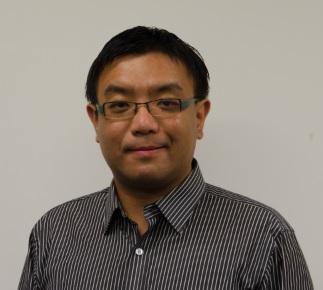
It is important that we recognise this ‘digital inequality’ or ‘digital divide’ in our community when providing services and solutions and make sure we don’t exclude these people
“It is important that we recognise this ‘digital inequality’ or ‘digital divide’ in our community when providing services and solutions and make sure we don’t exclude these people.
“We also need to have commitment and resources required to support the improvement of digital literacy and close the gap in our community.
“I feel the first step is to provide the access in an easy and friendly way,” he says.
“That’s why when I was at NZMA, we had 20 computer labs with over 500 PCs. This would allow allow each student to have a computer in the classroom and gain the necessary access to all online courses and solutions,” he says.
Gong has been helping Lifewise, an Auckland-based community social development organisation, to ensure “digital accessibility” to Cafe Merge.
The latter is a community social cafe on Karangahape Road in Auckland, which provides clients with wifi, Internet, computer kiosks, phone charging and document printing.
The second step is to offer the support and mentoring opportunities to ensure people are able to get the help needed in improving their digital literacy, he says.
“That’s why I would truly welcome the initiative for corporates to build partnerships with local community colleges, secondary or middle schools, or other community organisations, to offer such services,” says Gong.
“I believe this would not only have the positive impact on the individual but also with a much bigger impact to the wider community.”

The technology-related talent of the future will not miraculously materialise, it must be cultivated
Turn theory into practice
Carolyn Luey, New Zealand general manager at MYOB, believes the working environment has transformed, and today’s firms are seeking a different kind of person.
“Hiring graduates has evolved from looking for technical competency, to looking for the ability to collaborate and work as a team,” she says.
This, she says, was one factor behind MYOB IT Challenge, which the company launched three years ago.
MYOB Challenge is a national competition bringing teams of IT and business students together, to develop tech solutions for real-world business problems.
We wanted to give university students "real-life experience" of a team environment, she says. “The MYOB IT Challenge is helping students turn theory into practice.
“It helps encourage the next generation of technology students in their studies and it’s great to see teams from universities go head-to-head for a share in the prize pool and a leg-up in the IT world.
“It bodes well for New Zealand’s tech future,” says Luey.
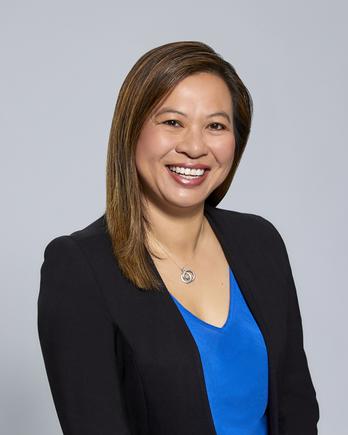
Last year, MYOB began the ‘Develop Her’ programme, teaching women with no formal IT qualifications how to code
MYOB is a significant employer of local developers in New Zealand and MYOB education manager Shailan Patel says the tech business is always looking for ways to grow the talent pipeline through schools and universities.
“We frequently team up with young Kiwis by running student-focused hackathons, code retreats and interactive workshops, as well as sponsoring several tech awards at New Zealand universities.
“These initiatives are all about helping Kiwi students understand the issues today’s businesses face and how they can use new technologies to create innovative solutions. It encourages the kind of entrepreneurial mindset that will have a key role in shaping how New Zealanders do business in the future,” says Patel.

We frequently team up with young Kiwis by running student-focused hackathons, code retreats and interactive workshops
MYOB is also set on improving diversity in the tech industry – including gender, ethnicity and age.
Last year, the online accounting software provider began the "Develop Her" programme, teaching women with no formal IT qualifications how to code.
Bust IT work myths
Ruth James, an engineer at Xero, is also involved with OMGTech! Ranger & She#.
James used to be events and outreach coordinator for Orion Health. Orion Health offices host high school and university students, with staff also mentoring some of the students.
“I saw how powerful it can be,” she says, on the impact of these visits for the students.
“It led me to become involved in other groups, and she continues to work with student groups in her current role at Xero.
“It is really important for tech companies to engage with highschool students and university students, show them what it really is to work in technology.”
She says at the same time, these visits can dispel some myths that “technology is boring” or “you have to be smart to get into it.”
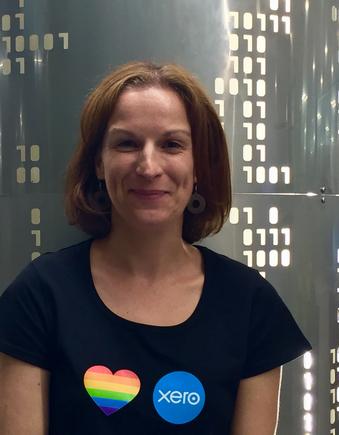
Technology is about problem solving, being creative... and we work in cool offices
She tells students that there is a range of work in the sector, from programming to user experience.
“Technology is about problem solving, being creative... and we work in cool offices,” she says.
Recently, she saw a student who won a Code Club competition and is now a computer science student. He told her were it not for the Code Club, he would not have considered taking up computer science.
“Engaging with the students, just being a catalyst, showing them the possibilities, those are really important,” she says.
A grounding experience
Ed Overy, CIO of KiwiRail used to be on the board of his local school.
“It was incredibly useful on a number of perspectives, like getting the experience of governance versus management,” says Overy.
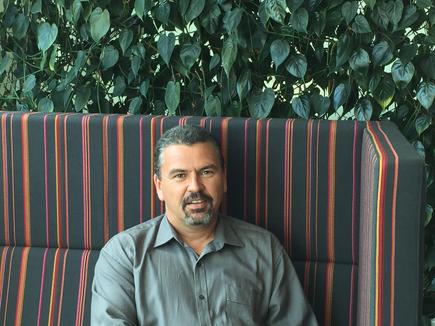
He was then GM of IT at another company and helped the school with their technology strategy.
“In a big organisation, IT projects can cost tens or hundreds of thousands, and even millions of dollars,” he explains.
“But a primary school has to figure out if it can buy one or two more Macs, and how much it can pay the systems administration person.
“What was really heartening for me was seeing the principal and the senior teachers, who genuinely have the best intention for the children... they really want the best outcome for the kids.”
“It was a very grounding experience.”

Are you helping out a school or launching similar programmes? We would like to hear from you. Email divina_paredes@idg.co.nz
Learn from your peers: Check out our State of the CIO report on the challenges and concerns of CIOs today. Sign up for CIO newsletters for regular updates on CIO news, career tips, views and events. Follow CIO New Zealand on Twitter:@cio_nz Join us on Facebook.
Join the CIO New Zealand group on LinkedIn. The group is open to CIOs, IT Directors, COOs, CTOs and senior IT managers.







